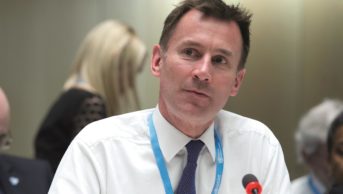
Shutterstock
If you want an example of the perverse twists and turns of the UK’s medicines supply market, just look at buprenorphine. This drug is a key maintenance treatment for opiate misuse, but supply issues have led to a major shortage and a 500% price rise has followed under the concessionary prices scheme since April 2018.
Unsurprisingly, this price hike is causing serious difficulties for rehabilitation services. Their budgets come out of local government public health allocations, which have been the target of funding cuts for years. In such a vulnerable group, switching to new medication can be very tricky and the risk of relapse is ever present.
The government appears powerless to intervene. Speaking in parliament, pharmacy minister Steve Brine said he expected the supply issues to resolve themselves in October 2018 and, subsequently, the price should become “increasingly competitive”.
The substance misuse services themselves say this situation is unsustainable
This has not happened. Public Health England says the original supply issue has been resolved, but supplies are still limited. It is warning drug services to plan for sustained high prices in the long term. The substance misuse services themselves say the situation is “unsustainable” and that it is affecting their ability to provide for this patient group.
Of course, none of this will surprise pharmacists, who have been at the sharp end of medicines shortages for years, often subsidising the health service when prices rise unexpectedly. However, the issue of medicines shortages may be gaining more national profile. The widely publicised shortage of EpiPens — with pharmacists asked to ration supply if children have an out-of-date EpiPen that can still be used — has been covered in the national media. And Brexit has shone a harsh light on quite how fragile the medicines market can be, with warnings that the UK does not have enough cold storage to ensure the supply of products such as vaccines, insulin and biologics in the event of ‘no-deal’.
In the midst of this, a revealing report published on 12 October 2018 by the House of Commons public accounts committee (PAC) looked at how the Department of Health and Social Care (DHSC) handled the generics drugs price problems in 2017. It said the DHSC was “slow” to act as it “did not have the information to understand what was happening”.
The Department of Health and Social Care’s delayed response to generics drugs shortages had a quantifiable financial cost of £315m to clinical commissioning groups spending in 2017
As well as the disruption and distress this caused patients, the report pointed out that the DHSC’s delayed response had a quantifiable financial cost of £315m to clinical commissioning groups spending in 2017, putting many into the red at the end of their financial year.
The PAC report added that it was not confident that the lessons have been learned from 2017. It raised concerns that despite new powers to demand information from generic manufacturers and step in to limit price rises, civil servants did not seem to have a clear idea how to use them. It is worrying that the DHSC seems ill-prepared for any future crisis. Certainly, its handling of the EpiPen and buprenorphine shortages gives little confidence that it will take a more active role in protecting patients.
With a potential ‘no-deal’ Brexit looming this concern is even more acute, but — as MPs point out — deal or no deal, the situation of medicines shortages in the UK is still a major problem affecting patient care that the DHSC must actively tackle. As always, it is the most vulnerable in society that will suffer if the current situation continues.


